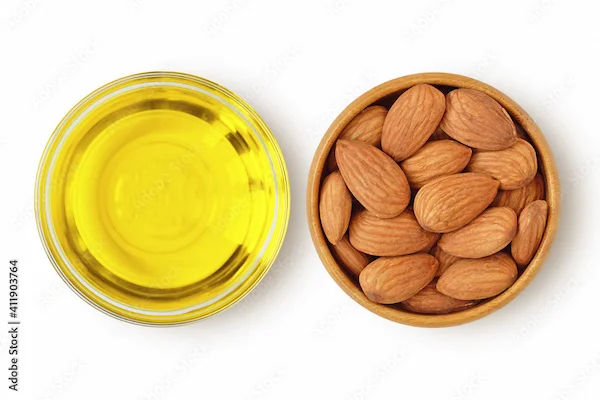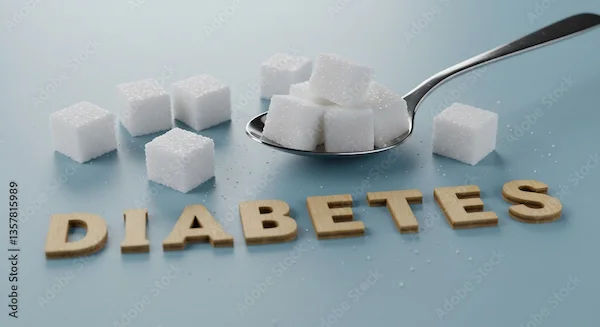How Fast Sugar Triggers Inflammation
Learn how quickly sugar can trigger inflammation in your body, the signs to watch for, and effective ways to reduce sugar-induced inflammation through diet and lifestyle changes.

Written by Dr. Siri Nallapu
Reviewed by Dr. Rohinipriyanka Pondugula MBBS
Last updated on 30th Jul, 2025

Introduction
Inflammation is the body’s natural response to injury or infection, but when it becomes chronic, it can lead to serious health problems like diabetes, heart disease, and arthritis. One surprising trigger of inflammation is sugar—especially when consumed in large amounts or too quickly.
If you’ve ever felt sluggish, bloated, or achy after indulging in sweets, sugar-induced inflammation might be the reason. Let’s explore how fast sugar triggers inflammation and what you can do to protect your health.
How Does Sugar Cause Inflammation?
When you consume sugar—especially refined sugars like those in sodas, candies, and pastries—your body processes it rapidly, causing a spike in blood glucose levels. This sudden rise triggers several reactions that promote inflammation:
1. Insulin Resistance – High sugar intake forces the pancreas to release more insulin. Over time, cells become resistant to insulin, leading to higher blood sugar levels and increased inflammation.
2. Release of Pro-Inflammatory Cytokines – Excess sugar prompts the immune system to release inflammatory molecules (cytokines), which can damage tissues over time.
3. Oxidative Stress – Sugar metabolism generates free radicals, unstable molecules that damage cells and worsen inflammation.
4. Gut Health Disruption – Sugar feeds harmful gut bacteria, leading to an imbalance (dysbiosis), which is linked to chronic inflammation.
Symptoms of Sugar-Induced Inflammation
If your body is reacting to excess sugar, you may experience:
- Fatigue and low energy
- Joint pain or stiffness
- Bloating and digestive discomfort
- Skin issues like acne or redness
- Frequent headaches
- Increased hunger and cravings
How Quickly Does Sugar Cause Inflammation?
The effects of sugar can be surprisingly fast:
- Within 30 minutes – Blood sugar spikes, triggering insulin release.
- Within a few hours – Inflammatory markers like C-reactive protein (CRP) may rise.
- Over days/weeks – Repeated sugar intake can lead to chronic low-grade inflammation.
How to Reduce Sugar-Induced Inflammation
The good news is that you can take steps to minimize inflammation caused by sugar:
1. Choose Low-Glycemic Foods
- Opt for whole fruits (berries, apples) instead of sugary snacks.
- Eat whole grains (oats, quinoa) rather than refined carbs (white bread, pastries).
2. Balance Meals with Protein & Fiber
- Protein (eggs, lean meat, lentils) and fiber (vegetables, nuts) slow sugar absorption.
Consult Top Specialists for Personalised Tips
3. Stay Hydrated
- Water helps flush out excess sugar and reduces inflammation.
4. Exercise Regularly
- Physical activity improves insulin sensitivity and reduces inflammation.
5. Get Enough Sleep
- Poor sleep increases sugar cravings and inflammation.
6. Try Anti-Inflammatory Foods
- Turmeric, ginger, fatty fish (salmon), and leafy greens help fight inflammation.
When to Seek Help
If you experience persistent symptoms like fatigue, joint pain, or digestive issues, it may be time to check your sugar intake and inflammation levels. Apollo 24|7 offers easy blood tests to monitor glucose and inflammatory markers. You can also consult a nutritionist for personalized advice.
Final Thoughts
While sugar is a quick source of energy, too much of it can silently fuel inflammation, leading to long-term health problems. By making mindful food choices and adopting healthy habits, you can enjoy sweets in moderation without triggering harmful inflammation.
Consult Top Specialists
Consult Top Specialists for Personalised Tips

Dr. Rajib Ghose
General Physician/ Internal Medicine Specialist
26 Years • MBBS
Kolkata
B Ghose Foundation Doctor's Chamber, Kolkata
(25+ Patients)

Dr. Swathi Reddy Perugu
General Physician/ Internal Medicine Specialist
7 Years • MBBS, MD (General Medicine)
Hyderabad
Health plus, Hyderabad

Dr. Rajib Ghose
General Practitioner
25 Years • MBBS
East Midnapore
VIVEKANANDA SEBA SADAN, East Midnapore

Dr. Lakshmi Sindhura Kakani
General Physician/ Internal Medicine Specialist
10 Years • MBBS, MD (General medicine)
Visakhapatnam
Apollo 24|7 Clinic - Andhra Pradesh, Visakhapatnam

Dr. V K Aneja
General Physician/ Internal Medicine Specialist
38 Years • MBBS, MD (Med.)
Delhi
Apollo Hospitals Indraprastha, Delhi
(75+ Patients)
Consult Top Specialists

Dr. Rajib Ghose
General Physician/ Internal Medicine Specialist
26 Years • MBBS
Kolkata
B Ghose Foundation Doctor's Chamber, Kolkata
(25+ Patients)

Dr. Swathi Reddy Perugu
General Physician/ Internal Medicine Specialist
7 Years • MBBS, MD (General Medicine)
Hyderabad
Health plus, Hyderabad

Dr. Rajib Ghose
General Practitioner
25 Years • MBBS
East Midnapore
VIVEKANANDA SEBA SADAN, East Midnapore

Dr. Lakshmi Sindhura Kakani
General Physician/ Internal Medicine Specialist
10 Years • MBBS, MD (General medicine)
Visakhapatnam
Apollo 24|7 Clinic - Andhra Pradesh, Visakhapatnam

Dr. V K Aneja
General Physician/ Internal Medicine Specialist
38 Years • MBBS, MD (Med.)
Delhi
Apollo Hospitals Indraprastha, Delhi
(75+ Patients)



